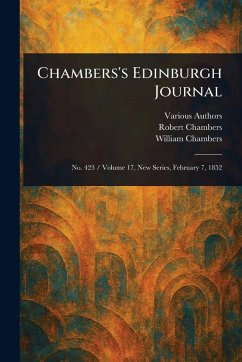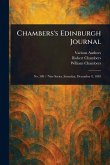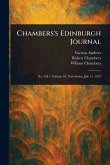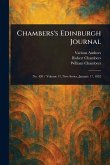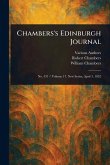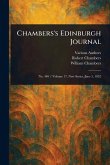Delve into the heart of 19th-century Britain and Ireland with this meticulously reproduced edition of "Chambers's Edinburgh Journal, Vol. 17 New Series, No. 423, Feb 7th, 1852." This historical periodical offers a fascinating glimpse into the social, political, and cultural landscape of the era through a collection of insightful essays. Explore diverse perspectives on British and Irish history, reflecting the general social concerns of the time. This volume provides a unique window into the past, offering valuable insights for anyone interested in the intricacies of 19th-century European history. A treasure trove for historians and enthusiasts alike, this journal captures the spirit of a bygone era. Discover the voices and viewpoints that shaped the course of history within these carefully preserved pages. This work has been selected by scholars as being culturally important, and is part of the knowledge base of civilization as we know it. This work is in the public domain in the United States of America, and possibly other nations. Within the United States, you may freely copy and distribute this work, as no entity (individual or corporate) has a copyright on the body of the work. Scholars believe, and we concur, that this work is important enough to be preserved, reproduced, and made generally available to the public. We appreciate your support of the preservation process, and thank you for being an important part of keeping this knowledge alive and relevant.
Bitte wählen Sie Ihr Anliegen aus.
Rechnungen
Retourenschein anfordern
Bestellstatus
Storno

